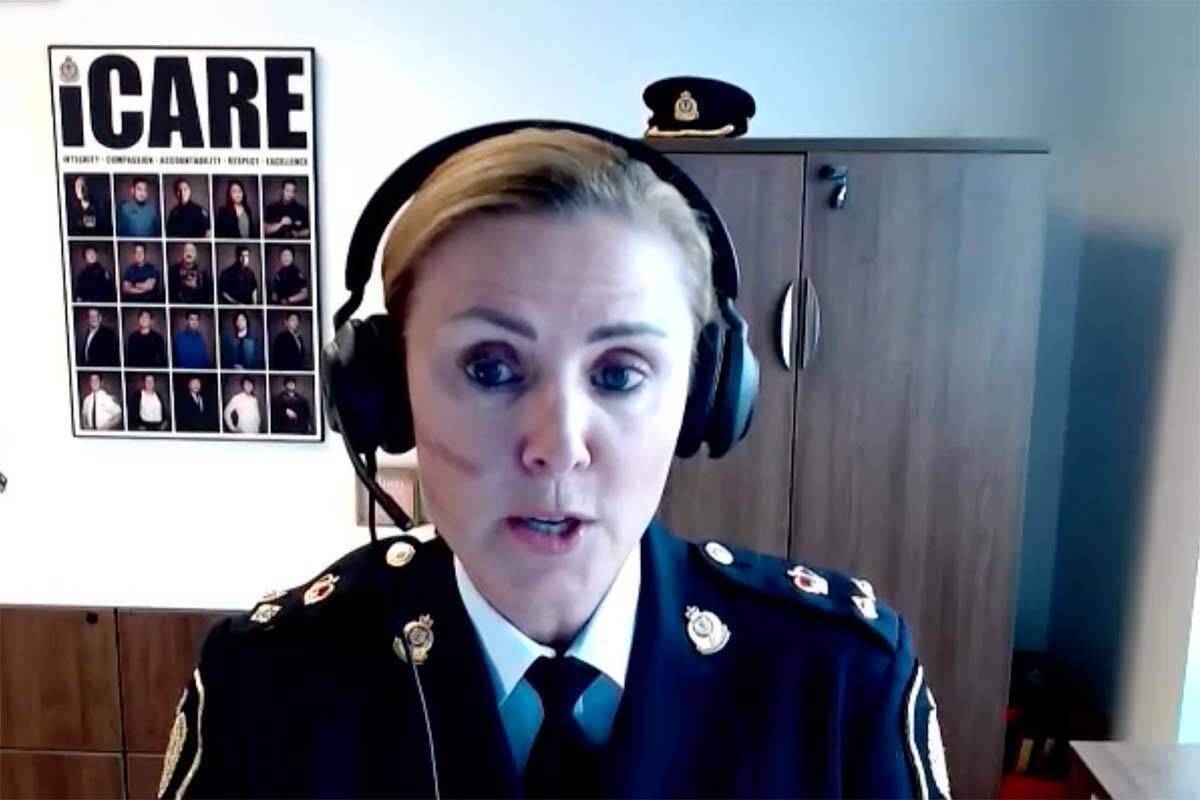Two senior B.C. police officers raised concerns about the effectiveness and execution of decriminalization, as well as the diversion of safe supply.
But each also expressed general support for a health-based approach toward the toxic drug crisis.
Fiona Wilson, deputy chief constable of the Vancouver Police Department and president of the BC Association of Chiefs of Police, told federal MPs Monday (April 16) that she disagrees with the statement that decriminalization has had more positive than negative impacts.
“As police leaders, we were unequivocal about the need to prevent unintended impacts on community safety and well-being, especially for youth,” Wilson said, adding that her organization raised these issues before decriminalization.
“Despite the progress made, the management of public drug consumption following decriminalization remains a concern,” she added later.
Dwayne McDonald, deputy commissioner and commanding officer of E
Division Royal Canadian Mounted Police, echoed Wilson. However, he explicitly rejected the idea that simple possession should be recriminalized.
“What I am saying is that decriminalization has not come without its challenges. So, for example, since decriminalization, our overdose deaths have not decreased in the province of British Columbia, nor have our overdose rates.
“We are still in the early stages. There is still much work to be done.”
Both officers made these statements while speaking to House of Commons’ Standing Committee on Health. They spoke just one day after British Columbians had marked the eighth anniversary of B.C. declaring the toxic drug crisis that has killed more than 14,000 people a public health emergency.
Both Wilson and McDonald pointed to data showing decriminalization has diverted people from the criminal justice system. But each readily acknowledged it has caused safety issues around public consumption.
When members of the public feel unsafe because of public consumption linked to decriminalization, “decriminalization and public acceptance of that will be an uphill battle,” McDonald said.
McDonald specifically called on government to exempt more areas from public consumption. But each acknowledged efforts to limit public consumption through legislation. Wilson specifically praising the province for having introduced legislation in the fall. Each also told MPs that this legislation is held up in front of B.C.’s highest court.
MPs asked Wilson and McDonald about a wide range of issues, including diversion.
The growing toxicity of the drug supply — not diversion from safe supply or genuine prescriptions — is the leading cause of death, Wilson said, adding fentanyl is responsible for 85 per cent of overdose deaths.
RELATED: B.C. won’t follow Oregon in drug decriminalization reversal: Eby
“They are not dying from diverted safe supply, they are not dying from diverted prescription medication, they are dying from fentanyl, coke, meth and that is where we really focus our enforcement efforts (in Vancouver),” she said.
She acknowledged that the situation may be different in other parts of the province.
Wilson said 50 per cent of hydromorphone seizures in B.C. come from safe supply. Anywhere between 4,500 to 5,000 British Columbians have access to safe supply, representing a “regular” but “limited amount” of drugs to be diverted, she said.
“Diverted safe supply pales in comparison compared to what organized crime is doing in terms of fentanyl production, importation, exportation, that’s where we focus our efforts in Vancouver,” she said.
McDonald called diversion an emerging concern that requires forthright attention. He said the RCMP is working with health authorities to better understand the issue and help officers distinguish safe supply from other sources.
“We want to make sure we are accurate (in identifying safe supply),” he added.
McDonald also warned against stigmatizing drug users during parts of his testimony. Wilson agreed.
“At the heart of it, police agree that people should not be criminalized as a result of their personal drug use.”

